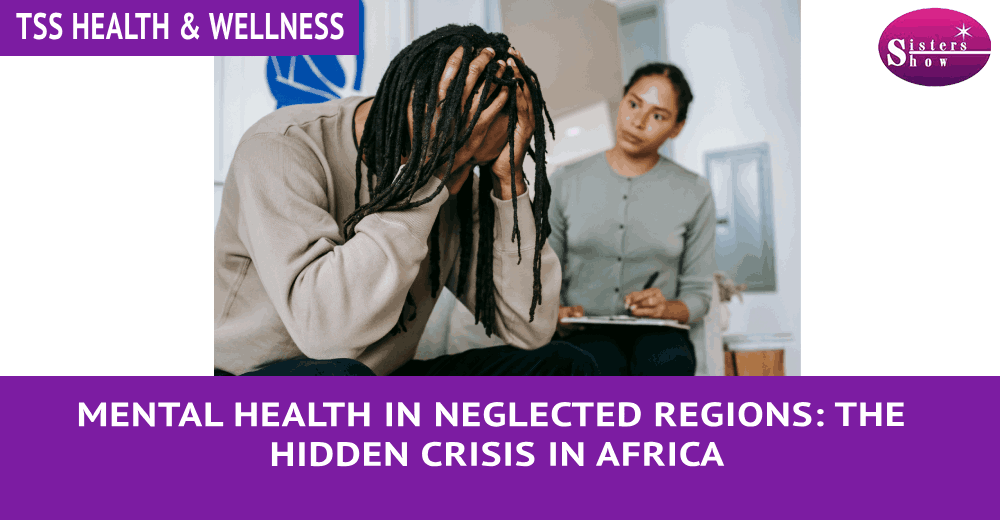
Mental Health in Neglected Regions: The Hidden Crisis in Africa
Mental Health Issues in Rural Areas: A Neglected Crisis Across Africa
We often discuss epidemics, pandemics, and infectious diseases, yet mental health—an invisible illness taking a heavy toll on individuals—receives insufficient attention, particularly in rural areas across Africa. Despite stories being written, read, and broadcasted, a glaring gap remains in addressing this critical issue.
Rising Suicide Rates Highlight the Crisis
A recent report by the Malawi Police Service recorded 276 suicide cases between January and June 2024, a stark reminder of the psychological challenges people face. This crisis is not confined to low-income countries like Malawi but spans across nations such as South Africa, Lesotho, Eswatini, Zimbabwe, and Cameroon.
Why Is Mental Health Neglected?
According to the World Health Organization (WHO) and the National Library of Medicine’s 2018 Global Health Action Report, mental health remains a low priority in many low-income countries. Rural areas in these nations experience even greater neglect. But what is mental health? The WHO defines it as “a state of well-being in which an individual realizes their abilities, copes with the normal stresses of life, works productively, and contributes to their community.”
Causes of Mental Health Issues in Africa
- Poverty: High poverty rates cause frustration, strain cognitive abilities, and lead to mental health issues.
- Urbanization and Migration: Migrants face uncertainties and traumatic events like accidents, exacerbating mental health challenges.
- Domestic Violence: In regions with high levels of domestic violence, depression and post-traumatic stress disorder are prevalent.
A Personal Story: Chikondi Mwale
Chikondi Mwale, a 20-year-old student at Soche Hill Secondary School in Blantyre, Malawi, experienced severe depression after losing his mother in 2022. He suffered from persistent sadness, fatigue, concentration difficulties, and disrupted sleep. With the help of his life skills teacher, Chikondi received cognitive behavioral therapy and antidepressants, enabling him to regain his strength. His story highlights the importance of early intervention and support.
The Consequences of Neglecting Mental Health
Research from the Mental Health Innovation Network (MHIN) lists the risks of untreated mental health issues:
- Worsening symptoms
- Impaired relationships
- Decreased productivity
- Increased suicidal thoughts
Mental health issues have broader implications for economies. For instance, untreated mental illness costs the U.S. economy $282 billion annually, equivalent to the economic impact of a recession. The effects are even more devastating in African countries, where economic challenges are already acute.
Addressing the Crisis: What Can Be Done?
Achieving the United Nations Sustainable Development Goal 3—ensuring healthy lives and promoting well-being for all ages—requires targeted action:
- Raise Awareness: Break the silence surrounding mental health.
- Provide Support: Encourage individuals struggling with mental health issues to seek help.
Dr. Precious Makiyi, a psychologist in Malawi, emphasizes that societal norms and myths significantly contribute to mental health challenges. According to SOS Children’s Village, misconceptions about mental health prevent millions in Africa from seeking care. Statements like “A man never cries” reflect the harmful stigmas that discourage emotional expression and treatment.
Working Together for Change
The story of Chikondi Mwale serves as a powerful reminder of what’s possible when support is available. By addressing mental health issues, we can improve lives, strengthen communities, and build resilient societies. Let’s prioritize mental health for all.
Don’t miss out on the latest updates. Stay updated on Health & Wellness with The Sisters Show. Get all the details and never miss a beat!
Read More:- MAJOR HEALTH CHALLENGES IN SOUTH AFRICA




